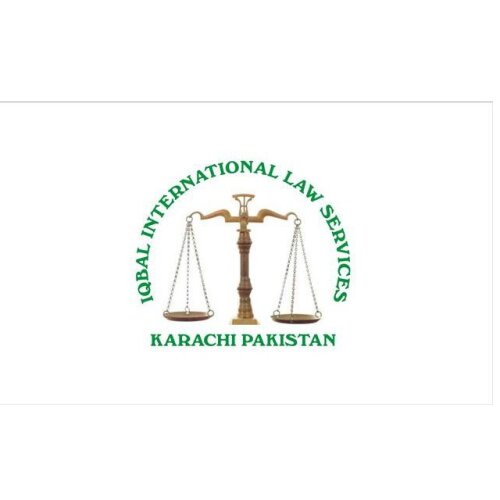Best International Trade Law Lawyers in Pakistan
Share your needs with us, get contacted by law firms.
Free. Takes 2 min.
Or refine your search by selecting a city:
List of the best lawyers in Pakistan
About International Trade Law in Pakistan
International Trade Law in Pakistan is a complex field that governs the rules and regulations related to trade between Pakistan and other countries. This includes import and export activities, tariffs, trade agreements, and dispute resolution mechanisms. The legal framework is influenced by both international treaties and local laws, ensuring that trade is conducted in a fair and efficient manner. Pakistan is a member of several international trade organizations, which play a significant role in shaping its trade laws and policies.
Why You May Need a Lawyer
Engaging a lawyer experienced in International Trade Law can be critical in several situations, such as:
- Navigating complex import and export regulations to ensure compliance.
- Resolving disputes involving international contracts or trade agreements.
- Advising on tariff and duty requirements, especially in regard to new trade policies or negotiations.
- Assistance in negotiating terms in international business transactions to protect business interests.
- Understanding the implications of trade sanctions or embargoes on your business operations.
Local Laws Overview
International Trade Law in Pakistan is interconnected with several local laws and regulations which include:
- Customs Act, 1969: Governs the import and export of goods, detailing procedures for customs documentation and duties.
- Import Policy Order and Export Policy Order: These documents outline the policies regarding permissible imports and exports.
- Sales Tax Act, 1990: Pertains to the imposition of taxes on the supply of goods and services imported into Pakistan.
- Anti-Dumping Duties Ordinance, 2000: Provides the procedural framework for the imposition of anti-dumping duties.
- Naturally, several international conventions and treaties, as to which Pakistan is a signatory, also guide these local implementations.
Frequently Asked Questions
What is the role of the Pakistan Single Window in international trade?
The Pakistan Single Window acts as a central platform aiming to simplify and streamline the flow of cross-border trade information and transactions, reducing processing times and improving compliance.
How can I determine the duty rates for a specific import?
The classification and appropriate duty rates can be determined by referencing the Harmonized Tariff Schedule, accessible through the Federal Board of Revenue or consulting with a trade lawyer.
What are the necessary documents for importing goods into Pakistan?
Key documents include the bill of lading, commercial invoice, packing list, import license, and certificate of origin. Depending on the goods, special permits may also be required.
What does an anti-dumping measure mean?
Anti-dumping measures are strategies employed to protect a country's domestic industry from unfairly low-priced foreign imports, typically through additional duties.
How can I resolve a trade dispute with an overseas partner?
Resolving international trade disputes typically involves negotiation, arbitration, or litigation, often under the frameworks provided by international organizations such as the World Trade Organization (WTO).
Is there a specific body for trade reforms in Pakistan?
The Ministry of Commerce is responsible for formulating trade policies and reforms, working in conjunction with other relevant institutions like the Trade Development Authority of Pakistan (TDAP).
How are bilateral trade agreements affecting local laws?
While bilateral trade agreements can change tariff structures or open new market access, they must align with existing Pakistani laws and are often implemented through updates in local legislation.
What is the significance of a certificate of origin?
The certificate of origin is a vital document that verifies the country of origin of the goods being imported or exported, impacting duties and tariffs applicable.
Can a small business engage in international trade without a lawyer?
While it's possible, it is often advisable for a small business to consult with a lawyer to understand the complexities and comply with legal requirements effectively.
What are the consequences of non-compliance with international trade laws?
Non-compliance can lead to penalties, fines, delays, or seizure of goods by customs authorities, negatively impacting business operations.
Additional Resources
For additional assistance and information, consider consulting the following resources:
- The Federal Board of Revenue (FBR) for customs and tax regulations.
- The Trade Development Authority of Pakistan (TDAP) for trade promotion and assistance.
- Pakistan Customs website for up-to-date procedures and policies.
- The World Trade Organization (WTO) website for international trade rules affecting Pakistani law.
Next Steps
If you need legal assistance in International Trade Law, consider the following steps:
- Identify and contact a lawyer specializing in International Trade Law.
- Gather all relevant documentation related to your trade matter.
- Schedule a consultation to discuss your specific legal needs and questions.
- Explore local bar associations or legal aid services to find credible and experienced attorneys.
Lawzana helps you find the best lawyers and law firms in Pakistan through a curated and pre-screened list of qualified legal professionals. Our platform offers rankings and detailed profiles of attorneys and law firms, allowing you to compare based on practice areas, including International Trade Law, experience, and client feedback.
Each profile includes a description of the firm's areas of practice, client reviews, team members and partners, year of establishment, spoken languages, office locations, contact information, social media presence, and any published articles or resources. Most firms on our platform speak English and are experienced in both local and international legal matters.
Get a quote from top-rated law firms in Pakistan — quickly, securely, and without unnecessary hassle.
Disclaimer:
The information provided on this page is for general informational purposes only and does not constitute legal advice. While we strive to ensure the accuracy and relevance of the content, legal information may change over time, and interpretations of the law can vary. You should always consult with a qualified legal professional for advice specific to your situation.
We disclaim all liability for actions taken or not taken based on the content of this page. If you believe any information is incorrect or outdated, please contact us, and we will review and update it where appropriate.
Browse international trade law law firms by city in Pakistan
Refine your search by selecting a city.

















